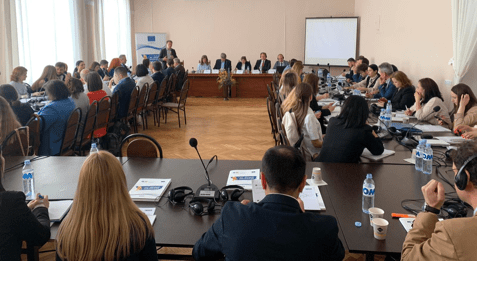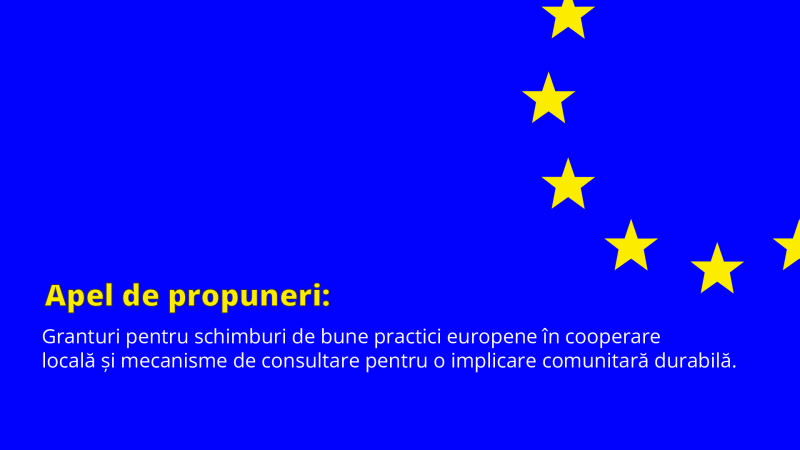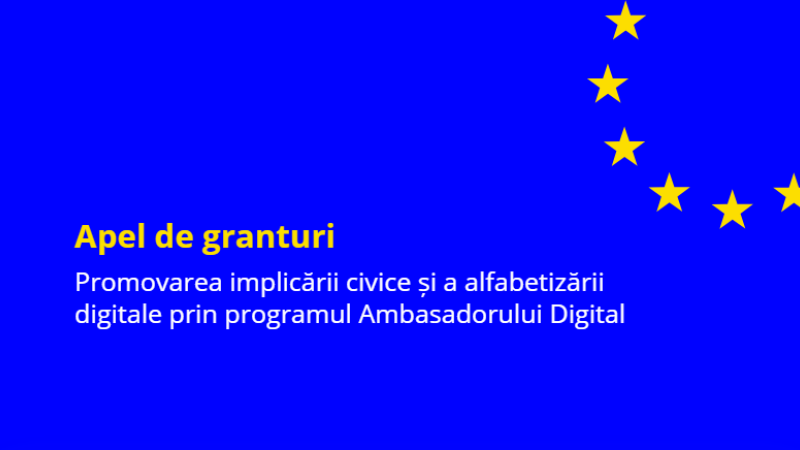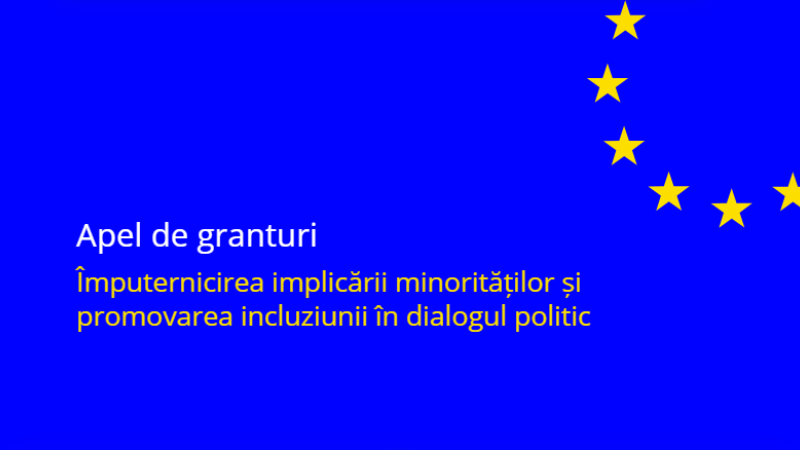
Masă rotundă cu autoritățile din Republica Moldova privind următorii pași pe care să îi întreprindă Republica Moldova în procesul de aderare la Uniunea Europeană
La 12 iunie 2023, proiectul finanțat de UE „Sprijin pentru dialog structurat de politici și coordonare a implementării Acordului de Asociere, precum și consolidarea procesului de aproximare legislativă” în strânsă cooperare cu Ministerul Afacerilor Externe și Integrării Europene a organizat o masă rotundă la complexul guvernamental din Holercani, pentru șefii și secretarii grupurilor de lucru responsabile de criteriile politice, economice și 33 de viitoare capitole de negociere a aderării la UE. Aceste grupuri de lucru sunt înființate prin Hotărârea Guvernului nr. 868 privind aprobarea mecanismului de coordonare, organizare și pregătire a procesului de aderare la UE, adoptată la 14 decembrie 2022.
Subiectul principal al reuniunii a fost legat de pașii următori pentru Republica Moldova în procesul de aderare la UE, cu accent special pus pe rolurile și sarcinile grupurilor de lucru pe parcursul procesului. Evenimentul a fost susținut îndeaproape nu numai de Ministerul Afacerilor Externe și Integrării Europene, ci și de Cancelaria de Stat/Centrul de Armonizare a Legislației și Delegația UE în Moldova. Peste 90 de participanți din diferite instituții de stat au participat la acest eveniment împreună cu reprezentanți ai Delegației UE în Moldova și experți din cadrul proiectului.
Masa rotundă s-a axat în prima parte pe situația actuală a procesului de aderare la UE a Republicii Moldova, etapele următoare și documentele procesului de aderare la UE. În a doua parte, masa rotundă s-a axat pe rolul grupurilor de lucru, pe planificarea procesului de aderare la UE și pe raportarea către UE.
După discursurile de bun venit și descrierea situației actuale din Republicii Moldova de către reprezentanții Ministerului Afacerilor Externe și Integrării Europene, secretarul de stat Stela Leuca și Șeful Direcției Afaceri UE, Eugen Caras, reprezentantul Delegației UE, dna Irina Cruceru și șeful echipei proiectului, dl Primož Vehar, au furnizat informații privind starea de lucru a procesului de aderare la UE a Republicii Moldova și perspectivele în viitorul apropiat de trecerea la următoarea etapă a procesului, respectiv deschiderea negocierilor de aderare. O discuție vivace a urmat prezentărilor legate de procesul de negociere a aderării la UE și următorii pași în calea aderării a Republicii Moldova la UE.
În cea de-a doua parte a mesei rotunde moderată de dl Eugen Caras, experții proiectului, dl Primož Vehar din Slovenia și dl Vladimir Međak, din Serbia, au prezentat etapele procesului de negociere a aderării la UE și procesul general de negociere a aderării la UE pe baza propriei experiențe. Dl Međak a făcut o descriere suplimentară a etapelor-cheie ale negocierilor de aderare la UE, a dinamicii negocierilor și a lecțiilor învățate majore din negocierile în curs de aderare la UE cu Muntenegru și Serbia, aplicabile Republicii Moldova. În plus, expertul a explicat diferitele documente care sunt utilizate în cadrul negocierilor (atât documentele UE, cât și cele ale Republicii Moldova) și impactul metodologiei UE recent adoptate (2020) pentru negocierile de aderare. Alte subiecte au inclus cadrul de negociere, poziția generală de negociere a unei țări de negociere, procesul de examinare, rapoartele de examinare, criteriile de referință pentru negociere (criterii de referință de deschidere, intermediare și de închidere). În cele din urmă, dl Međak a elaborat cu privire la pozițiile naționale de negociere ce înseamnă abordarea „Fundamentals First” pentru Moldova împreună cu cele șase clustere de negociere și modul în care Moldova ar trebui să acorde prioritate reformelor și secvențierii următorilor pași.
Dl Vehar a subliniat importanța apropierii legislative care începe cu o planificare adecvată, continuă cu solicitarea transpunerii actelor juridice ale UE în sistemul juridic moldovenesc și, în cele din urmă, este necesară implementarea și aplicarea corespunzătoare. „Sine qua non” pentru apropierea legislativă va fi pregătirea și adoptarea Programului național de adoptare a acquis-ului UE (NPAA) ca document-cheie de planificare strategică, definind cine face ce și când se referă la apropierea juridică și ce consecințe ar putea avea asupra finanțelor și asupra resurselor umane punerea în aplicare a noilor acte juridice. Dl Vehar și dl Međak au prezentat caracteristicile și caracterul multifuncțional al NPAA în timpul negocierilor de aderare, cu accent special pe experiențele Sloveniei și Serbiei cu acest document de planificare specific.
Ambii experți au explicat experiența și rolurile țărilor lor, precum și sarcinile pe care aceste grupuri de lucru le-au îndeplinit în țările lor în planificarea procesului de aderare la UE și în derularea procesului, dar și modul în care planificarea procesului de aderare la UE și raportarea către UE au funcționat în țările lor respective în timpul procesului.
Masa rotundă s-a finalizat cu o sesiune de întrebări și răspunsuri, care a continuat în ultima parte informală a mesei rotunde.
Proiectul finanțat de UE „Sprijin pentru dialog structurat de politici și coordonare a implementării Acordului de Asociere, precum și consolidarea procesului de aproximare legislativă” are ca scop creșterea capacităților Guvernului Republicii Moldova și ale altor instituții naționale cheie în implementarea Acordului de Asociere UE-Moldova. După primirea de către Republica Moldova a statutului de țară-candidată la UE, proiectul este pregătit să ofere asistență avansată în scopul consolidării administrației moldovenești pentru a fi pregătită pentru următorii pași în procesul de integrare în UE.


